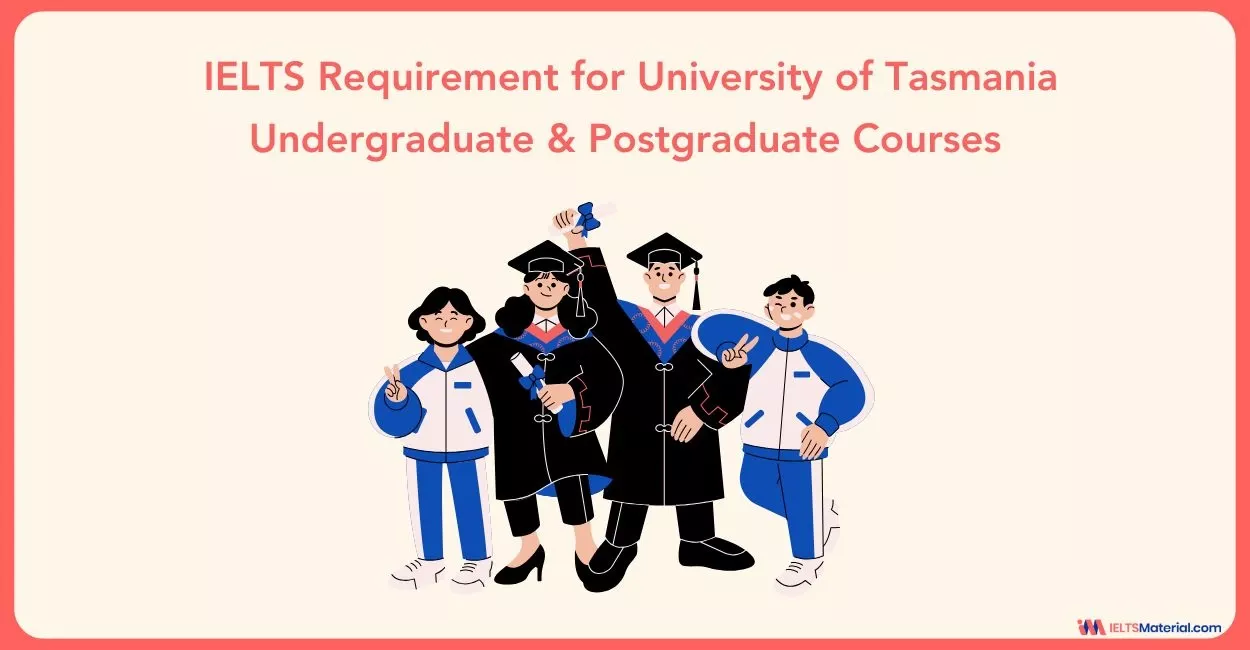IELTS Life Skills
Want to know about the IELTS Life Skills? Dive into the types of exam, format, preparation tips and strategies to ace the exam with a higher band score.
Table of Contents

Limited-Time Offer : Access a FREE 10-Day IELTS Study Plan!
If you wish to settle in the UK, you may need to take one of the IELTS Life Skills tests. The test is different from the traditional IELTS Academic or General Training tests in that it is intended to evaluate the speaking and listening abilities of an applicant at either the A1 or the B1 level of the Common European Framework of Reference for Languages (CEFR). The IELTS Life Skills Test was started in April 2015 for specific Visa requirements to immigrate to the United Kingdom. Out of all the English Tests, the IELTS exam and the IELTS Life Skills are the only tests available when applying for visas both outside and inside the UK.
In this blog, we will dive into everything there is to know about IELTS Life Skills, the expectations on test day, and how to prepare effectively. The IELTS Life Skills test assesses the candidate on their Listening and Speaking skills alone according to the Common European Framework of Reference for Languages (CEFR) level, A1, A2 or B1.
What is IELTS Life Skills?
The IELTS Life Skills is one of the tests to check the level of proficiency in English that assesses only the speaking and listening skills. This test is for individuals who are attempting the test to prove English competence for UK Visas and Immigration (UKVI) purposes. There are two notable levels which are given below:
- IELTS Life Skills A1- For those applying for the Family Visa, such as spouse or partner.
- IELTS Life Skills B1- For those applying for Indefinite Leave to Remain (ILR) or citizenship in the UK.
The test has a focus on assessing the day-to-day communication skills needed for interaction and for living in an English-speaking environment.
Who needs to write this test?
The IELTS Skills Test is written by the specific candidates who apply for the UK Visa Immigration. They are:
- Sportsperson
- Representative of an Overseas Business
- Partner
- Parent
- Settler (also known as indefinite leave to remain)
- Person applying for Citizenship
Want to ace the IELTS exam with band 8+? Our experts can help you achieve your target score with our Free Webinar now.
Types of IELTS Life Skills
There are three types of tests available. The table below suggests the different types of tests in IELTS Life Skills.
| IELT Life Skills Test Type | Description | Time |
| IELTS Life Skills – A1 | Speaking and Listening | 16-18 minutes |
| IELTS Life Skills – A2 | Speaking and Listening (Offered in the UK only) | 20 minutes |
| IELTS Life Skills – B1 | Speaking and Listening | 22 minutes |
The test consists of two parts. In the first part, you will have to answer the questions asked, and in the second, you will have to do a combined IELTS Listening and Speaking task. It is to be noted that you will be taking up the test with one another candidate. These tasks are related to everyday life in an English-speaking country. Thus, the questions, conversations among the examiner, another candidate, and you would be related to everyday subjects such as:
- personal details/experiences
- family and friends
- buying goods
- work
- health
- leisure
- education/training
- transport
- housing
- weather
Detailed format of the tasks in IELTS Life Skills
The IELTS Life Skills Test has three parts. These will be assessed based on your specific abilities which are mentioned in the table below.
| Test Part | Description | Assessment Criteria |
| Introduction and Interview | The examiner will ask questions about familiar topics-such as your job, your hobbies, your family, or what you do on a typical day. | This will assess your ability to express basic information and opinions. |
| Listening Task | You will hear one short audio clip-a conversation or announcement-and you will answer questions, then with the other candidate discuss the topic. | This is to show that you understand and respond well. |
| Collaborative Task | You'll have to plan something with the other candidate or solve a problem together. | This part assesses your ability to take turns, agree or disagree politely, and ask relevant questions. |
- Similar to the first part of a normal IELTS Speaking Test, you are expected to ask and answer questions on a few topics.
- The second part is a combined listening and speaking task.
- In the Listening task, you will listen to a task played on a CD and answer the questions given by the examiner.
- After the listening task, you will be asked to discuss a topic relating to the theme on the CD.
- At the B1 level, you will additionally be asked to plan an activity with the other candidate.
Grab the IELTS Speaking: Channeling the voice in 30 days today and excel in the IELTS exam with a band 8+!
Assessment Criteria for IELTS Life Skills
You will be assessed on your ability in four key areas:
- obtaining information
- conveying information
- speaking to communicate
- engaging in discussion
Here is a detailed explanation of the factors that you will be assessed upon:
| A1 | |
| Focus | You will be expected to:
|
| Tasks may include: |
|
| B1 | |
| Focus: | You will be expected to:
|
| Tasks may include: |
|
Results of the IELTS Life Skills
The fee for IELTS Life Skills is Rs. 10,950. Unlike the IELTS Test, you will receive only two results for this exam:
- Pass
- Fail
“FAIL” means that you have not been successful, and your test cannot be used for your visa application. Test results are available within 6 days of your test.
Preparation Tips for IELTS Life Skills
It may be a simplified version of the entire IELTS test, but the importance of preparation is still vital if you are preparing for the IELTS Life Skills. Here are some important tips which you can follow in order to excel in the IELTS Life Skills test.
- Real-life Conversations Practice - The test is more on displaying one's ability to carry on discussions of day-to-day issues such as shopping, travelling, hobbies to food in order to articulate in opinions, questions, and phrases.
- Develop Listening Skills - Listen to English podcasts, news clips, and everyday conversations and then practice summarizing things you've heard, and taking educated guesses about future developments.
- Work on Pronunciation - One should pronounce clearly rather than being just grammatically right. Record your speech and concentrate on the pace as well as the clarity.
- Practicing with a Friend - Since this is a test in the presence of another candidate, you have a time to talk to a person in such the same arrangement.
- Mock Tests - You need to get used to that format by taking the sample tests, which you can find at the official IELTS website as well as some other prep platforms.
Focused preparation and practice over time can see you pass this test with confidence and closer to achieving one of your immigration goals to the UK. Skills development for real life, relaxation during testing, and last but not least, understanding that success lies in simplicity and clarity will get you there. Let's get you started on this journey to excel the IELTS Life Skills Test!
Also Check :
Learn everything about IELTS

Start Preparing for IELTS: Get Your 10-Day Study Plan Today!
Recent Articles

Kasturika Samanta







Post your Comments